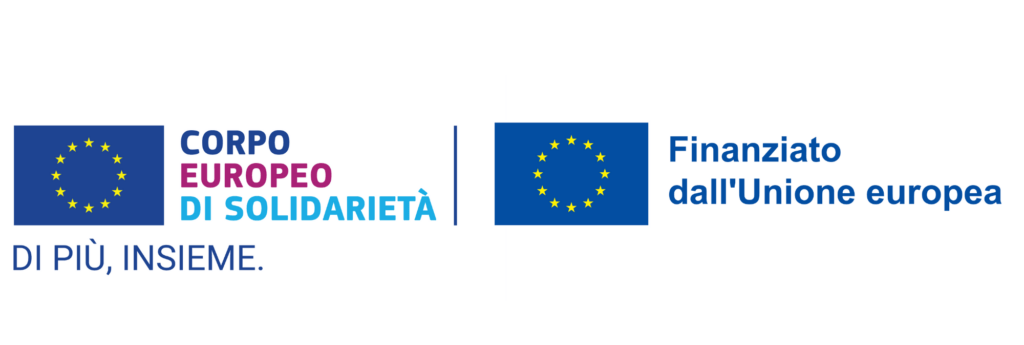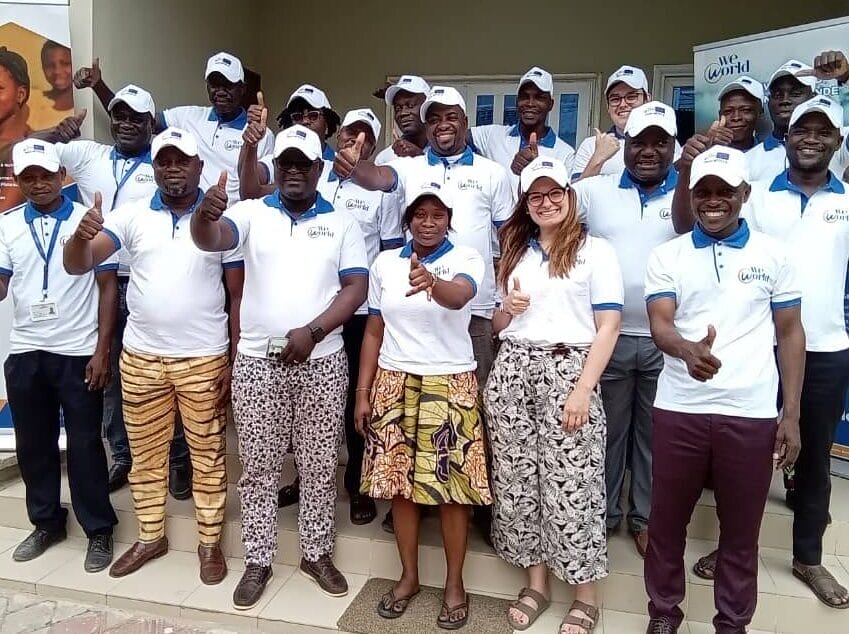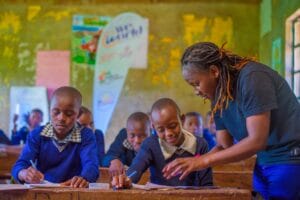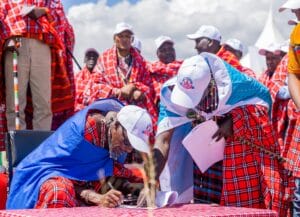
Leaving behind the familiar and their comfort zone, Humanitarian Aid Volunteers from the European Solidarity Corps (ESC) project MorEYoung, funded by EU, embarked on journeys that led them into the heart of international cooperation. Their experiences marked by cultural discoveries, professional challenges, and personal growth spanned continents, from the lively streets of Cambodia to the green hills of Burundi, the vibrant culture of Benin, the dynamic landscapes of Kenya, the humanitarian efforts in Moldova, and the ever-changing environment of Mozambique. Through their intertwined narratives, a common theme emerges: the transformative power of volunteering, both for those who serve and the communities they support.
New Realities, New Perspectives
For both Gabriela and Matilde in Cambodia, joining WeWorld as Project Management Assistants was both a professional breakthrough and a personal revelation. From drafting project proposals to collaborating with local NGOs, their roles involved a dynamic mix of fieldwork and office tasks. Matilde, arriving with little knowledge of Cambodia, was struck by the blend of rural simplicity and urban chaos. She quickly learned that expectations and reality often diverge, particularly in international cooperation, where adaptability is key. "I came with no expectations, but Cambodia has surprised me in every way with its energy, its contrasts, and the resilience of its people," Matilde shared. Gabriela, meanwhile, found herself inspired by the resilience of local communities and the collaborative spirit of her colleagues.
Joana’s arrival in Bujumbura, Burundi, was a test of patience and resilience. As a Communication Assistant, she navigated various departments, from finance to logistics, gaining a holistic understanding of NGO operations. Her role was more than just writing reports: it was about capturing the stories behind WeWorld’s work, learning to communicate impact effectively, and immersing herself in a culture where relationships take precedence over speed. Through her role, she developed a deeper appreciation for how international cooperation functions beyond the surface level. "One of the biggest lessons I’ve learned is that cooperation is not just about aid, it’s about listening, understanding, and growing together," Joana reflected.

Arianna, deployed in Benin as a Project Manager Assistant, shifted seamlessly between formal meetings and field missions. Her support in child protection and education initiatives exposed her to the deep-rooted challenges faced by local communities. One moment, she would be drafting donor reports, the next, she would be distributing school supplies to children whose excitement over a simple pen was a humbling reminder of education’s transformative power. Her contribution also extended to reinforcing child participation and empowerment, helping to create a sense of agency among young students.
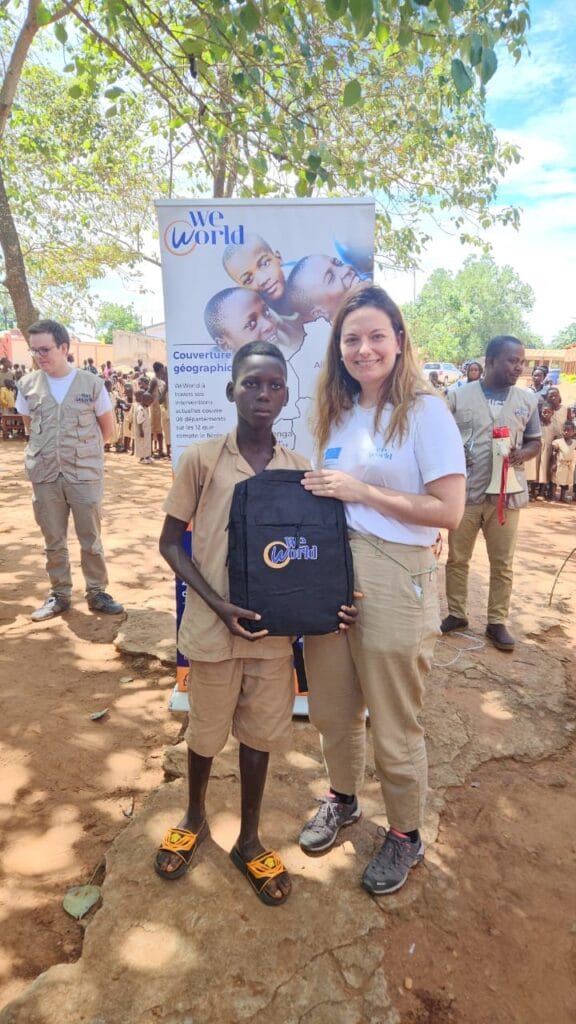
In Kenya, Davide and Ludovica played critical roles in WeWorld’s education and youth empowerment projects. Their support included overseeing school construction, organizing motivational talks, and tracking project activities to ensure long-term impact. Ludovica, focused on logistics and procurement processes, found herself immersed in a world of spreadsheets, donor compliance, and audits work that, though behind-the-scenes, was vital in keeping projects running smoothly. Davide, meanwhile, had the opportunity to engage with students directly, seeing firsthand how WeWorld’s interventions were shaping futures. "Seeing how a simple initiative can change a child's perspective on education makes every challenge worth it," Davide noted.
Meanwhile, Michelle [LD1] in Moldova contributed in providing support to children and caregivers affected by the Ukraine conflict. From coordinating education and mental health support to drafting advocacy materials, she played an integral role in ensuring that the project met the evolving needs of displaced families. She also developed a keen understanding of humanitarian coordination, seeing how different stakeholders from NGOs to government agencies worked together to deliver effective aid.
In Mozambique, Araceli experienced firsthand how political shifts and social challenges impact humanitarian work. Her role as a Project Management Assistant required her to track activities, ensure accurate documentation, and collaborate with local specialists like her colleague Graça, a Gender Expert whose insights broadened Araceli’s understanding of community engagement.
Everyday Life as a Volunteer
Despite working in different regions, the volunteers share commonalities in their routines: early mornings, packed schedules, and constant learning. Their days are a blend of professional responsibilities and cultural immersion. In Phnom Penh, Matilde adapted to the city's unpredictable nature, where mango trees lined the streets alongside fast-rising skyscrapers, while Joana in Bujumbura balanced yoga sessions with communications tasks and cultural events in the evenings. Arianna in Benin split her time between office and school visits, witnessing firsthand the impact of WeWorld’s educational initiatives. In Kenya, Davide and Ludovica balanced field missions with intense financial planning sessions, ensuring resources were used effectively. For Michelle in Moldova, meetings with stakeholders and coordination efforts kept her days unpredictable but deeply fulfilling. The intersection of emergency response and long-term development strategies gave her a broader view of humanitarian aid. Araceli in Mozambique navigated a dynamic work environment where flexibility was essential, especially when political unrest disrupted planned activities.
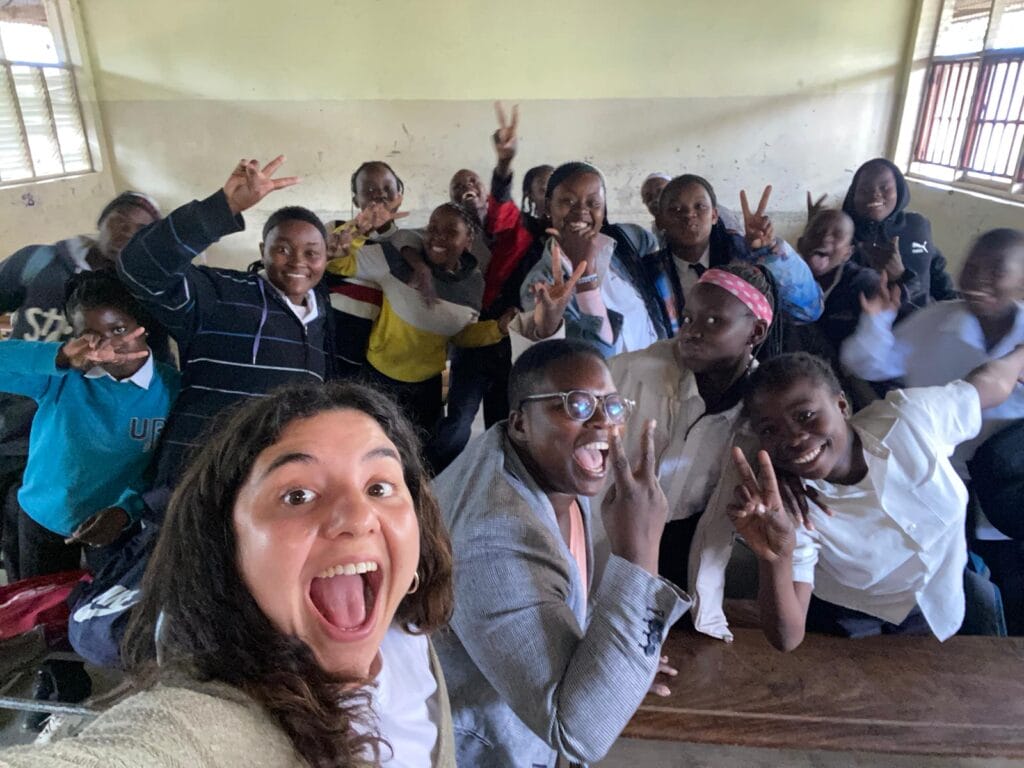
Moments That Defined Their Journeys
Beyond the daily grind, certain experiences left lasting impressions. For Matilde, conducting a needs assessment in Cambodia revealed the stark realities of education inequity. Parents, teachers, and students spoke of the barriers they faced, reinforcing her commitment to international cooperation. Seeing a school function despite limited resources was both heartbreaking and inspiring.
Davide, working in Kenya, was moved by the gratitude of children receiving school supplies items that were considered basic in Europe but life-changing there. Ludovica, deeply involved in procurement, saw the tangible impact of her behind-the-scenes work when a school was finally completed, fully equipped, and ready to welcome students. Witnessing the direct impact of their logistical efforts made the meticulous paperwork worth it.
Michelle’s experience in Moldova brought her face-to-face with the resilience of refugee families. Witnessing how children, despite the trauma of displacement, found comfort in education and structured activities strengthened her belief in the power of humanitarian action. Araceli, in Mozambique, found inspiration in her interactions with local colleagues. Learning from Graça, a Gender Specialist, gave her a newfound appreciation for the complexities of gender-based issues in development work.
Lessons That Will Last a Lifetime
Each volunteer is feeling that their assignment are more than just a professional experience: they are gaining new perspectives, deeper empathy, and a heightened awareness of global challenges. Joana’s time in Burundi is reinforcing her passion for international cooperation and the role of storytelling in advocacy. Arianna is honing her ability to navigate cultural differences, a skill she knows will be invaluable in any future role.
For Gabriela and Matilde, Cambodia is being a lesson in resilience and adaptation. Davide and Ludovica in Kenya are gaining a deeper understanding of education’s role in shaping futures. Michelle, through her contribution in Moldova, is developing skills in humanitarian coordination that will guide her next steps in the sector. Araceli’s experience in Mozambique is teaching her the importance of crisis management and the need for adaptability in humanitarian work.
As their journeys are unfolding, these volunteers are becoming more than just temporary actors in the field of international cooperation. They are catalysts for change both in the communities they serve and within themselves. The seeds they are planting during their time abroad, much like the tamarind tree, may take years to bear fruit, but their impact will continue long after their departure, and the months ahead, until the end of their deployment, will only increase the impact of their experiences.

Their stories remind us that change is often slow and incremental, but every small effort counts. Whether it is a Volunteer in Procurement ensuring financial transparency, a Volunteer in Project Management empowering students, or a Volunteer in Communication amplifying unheard voices, each contribution shapes a larger picture of progress. The ESC experience is not just about giving, but also about growing, learning, and building a future where collaboration transcends borders and lasting change becomes a shared reality.
Do you want to join us as ESC Humanitarian Aid Volunteer? Find info on how to participate here!
Funded by the European Union. Views and opinions expressed are however those of the author(s) only and do not necessarily reflect those of the European Union or EACEA. Neither the European Union nor the granting authority can be held responsible for them.
